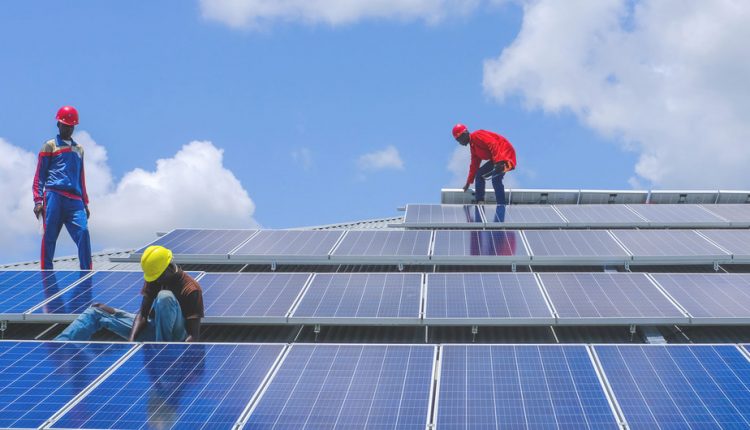Time to pay up: UN summit to push for development finance breakthrough
A sustainable global economy – one that preserves the planet and improves lives everywhere – is also a huge opportunity to create new jobs and market opportunities worth trillions of dollars, says the UN. But to make it happen, the international community needs to rapidly scale up investment.
In a bid to convince nations to spend their money in areas that support the 17 comprehensive Sustainable Development Goals (SDGs), the UN is bringing leaders from governments, business and the financial sector together in New York on Thursday, for the first High-level Dialogue on Financing for Development since the adoption of the ground-breaking Addis Ababa Action Agenda in 2015, which set out a series of bold measures to overhaul global finance practices and direct funds towards tackling a range of economic, social and environmental challenges.
The UN estimates that achieving the SDGs could generate some $12 trillion of value across the global economy, and create 380 million new jobs by 2030. But realizing this objective will take annual investments, across all sectors, of $5-7 trillion: currently, investment levels are falling far below that level.
Several reasons have been put forward to explain the shortfall, including uneven economic growth, and increasing inequality. Other factors include trade-restrictive measures, rising debt levels, and falling foreign direct investment, which are hampering the ability of many countries to invest in the Sustainable Development Goals.
Liu Zhenmin, the Under-Secretary-General for Economic and Social Affairs, told UN News in a text interview that given the transformational changes required, and the vast financing needs, private resources will have to complement the public money that represents the backbone of available resources. “In light of the significant challenges we face, the sustainability transition in financial systems is not happening at the required scale, nor at the required pace”, he warned.
The Under-Secretary-General recognized that interest and investment in the Goals are rising: the financial industry is increasingly factoring climate-related risks into its investment decision making processes, and digital tools and financial innovation are unlocking new sources of financing for sustainable development.
Projects underway in Africa
In Africa, projects supported by the World Bank are demonstrating the positive impacts that sustainable development can have on communities. The island nation of São Tomé and Príncipe, highly vulnerable to floods, coastal erosion and natural disasters, is benefiting from the West Africa Coastal Areas Management Program, which is helping the government to incorporate climate risks when planning infrastructure such as roads and public buildings, and ensure that they are built at a safe distance from the shoreline.
Morocco, one of the countries on the frontline of climate change, is facing severe coastline erosion, rising temperatures, and reduced rainfall. World Bank-supported programs have helped the Moroccan government to factor in the impacts of climate policies on different sectors of the economy, and major energy savings have been made by using renewable energy systems and improving energy efficiency.
“Achieving sustainable development requires a long-term perspective”, said Mr. Zhenmin. “Public and private incentives need to be aligned with sustainable development, so that all financing decisions incorporate sustainability as a central concern“.
It is expected that the conference will serve as a call for collective action to spur Member States and the private sector, to announce fresh measures and concrete actions that will increase financing for sustainable development.
The UN Secretary-General’s call to action on financing:
-
Policy-makers and regulators to create a long-term investment environment allowing sustainable development which seeks to promote the health and well-being of people and planet.
-
Implementation by the finance industry of sustainable investment strategies, scaling-up ‘green’ financial instruments, and measurable impacts.
-
Action by shareholders and citizens to increase demand for greener, more sustainable investments of their assets, and for greater sustainability disclosure to increase accountability and transparency.

